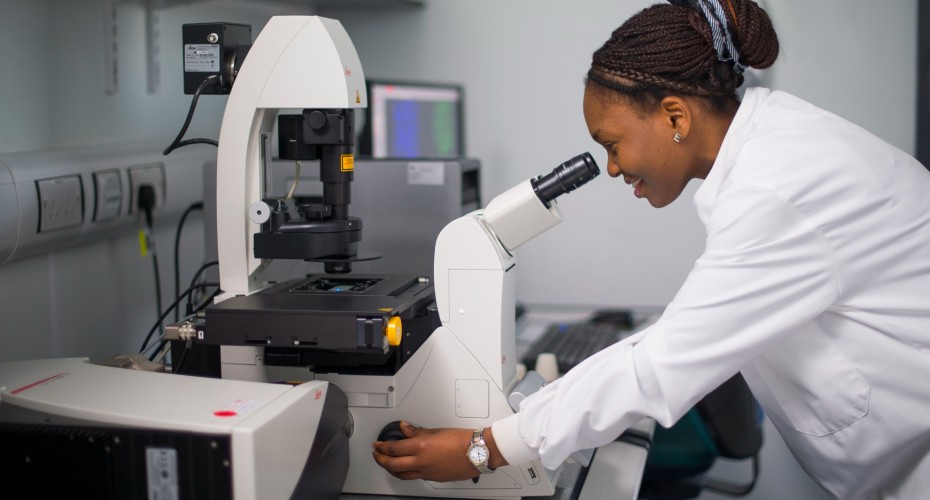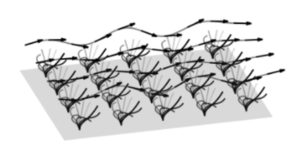Scientists receive £12.3m to develop biomedical Engineering Biology Mission Hub

The University of Exeter is part of a national hub that will develop vaccines, diagnostics, and therapeutics, benefiting millions of people worldwide, thanks to funding from UK Research and Innovation (UKRI).
The GlycoCell Engineering Biology Mission Hub will receive £12.3 million in funding as part of an overall investment of £100m from UKRI’s Technology Missions Fund and UKRI and BBSRC’s core budgets.
The Hub is one of six new Engineering Biology Mission Hubs and 22 Mission Award projects, announced by Andrew Griffith, Minister for Science, Research and Innovation, that will unlock the potential of Engineering Biology.
The GlycoCell Engineering Biology Mission Hub will be led by the University of Nottingham and will be a collaboration between six academic institutions – the London School of Hygiene & Tropical Medicine (LSHTM), Imperial College London, the University of Dundee, the Quadram Institute, and the University of Exeter and three industrial partners – Iceni Glycoscience, Synthace Limited, and Incepta Pharmaceuticals Ltd.
Last week Andrew Griffith visited the new GlycoCell Hub based at the University of Nottingham to understand how it is helping to exploit Engineering Biology to produce new vaccines, diagnostics, and therapeutics, by industrialising the bio-manufacture of sugar-based biomolecules crucial to their development.
Engineering Biology uses recent advances in our ability to design and build biological technologies to sustainably address current and future challenges in health, food, manufacturing, the environment, and climate change. The GlycoCell team will apply these techniques to the biology of glycans, sugar-based chemicals that functionalise cells and proteins.
Andrew Griffith MP visits the University of Nottingham (Full caption below)
Glycans have a huge impact on biology, are integral to the way that our immune system interacts with pathogens and ensure that many modern pharmaceuticals function properly. However, glycans are currently very difficult to study and manufacture and can be considered to be the “dark matter” of biology.
The GlycoCell Engineering Biology Mission Hub will bring together a range of experts from different fields to unlock the potential of glycans. This promises to accelerate vaccine discovery and production, generate new therapeutics and diagnostics, and dramatically reduce the production costs of advanced drugs.
GlycoCell will:
- Unlock our ability to program glycan sugars, opening a world of research opportunities in biology and medical biotechnology.
- Design, test and make many new therapeutics, diagnostics and vaccines against pathogens that impact human and animal health.
- Enhance our epidemic preparedness.
- Counteract antimicrobial resistance by developing vaccines against bacterial and fungal pathogens, reducing our reliance on antibiotics to combat these threats.
- Develop the technology to move production of advanced drugs to microbial hosts, considerably reducing their cost thanks to scalable production.
- Build and deploy GlycoForge, a specialist automated facility, as a UK national asset that will routinely develop vaccines, diagnostics, and therapeutics, and will be ready to deliver a 100-day rapid response to new pandemic threats.
- Train the current generation and develop future leaders in Engineering Biology for academia, industry, and the public sector.
Dr John Heap from the School of Life Sciences at the University of Nottingham is the Principal Investigator and Co-Director of the Hub, working with a team of colleagues. He said: “We are delighted to receive this significant investment from DSIT and UKRI to take the GlycoCell Hub forward. It will make a leading, transformative contribution to bringing about a healthier, more sustainable, equitable and prosperous future.”
Nicholas Harmer, Associate Professor in Biochemistry at the University of Exeter, said: “We’re delighted to bring our experience and expertise in Engineering Biology, working with challenging microbial biochemistry and human fungal pathogens to this national team of experts. This new Hub will speed up research on vaccines and treatments for microbial pathogens, ultimately benefitting human health.”
In Exeter the new Hub will involve collaboration with the University of Exeter’s Living Systems Institute, MRC Centre for Medical Mycology, Biosciences and Exeter Innovation.
Announcing the funding the Science, Research and Innovation Minister, Andrew Griffith, said: “Engineering biology has the power to transform our health and environment, from developing life-saving medicines to protecting our environment and food supply and beyond.
“Our latest £100m investment through the UKRI Technology Missions Fund will unlock projects as diverse as developing vaccines, as I saw Nottingham this week, preventing food waste through disease resistant crops, reducing plastic pollution, and even driving efforts to treat snakebites.
“With new Hubs and Mission Awards spread across the country, from Edinburgh to Portsmouth, we are supporting ambitious researchers and innovators around the UK in pioneering groundbreaking new solutions which can transform how we live our lives, while growing our economy.”



